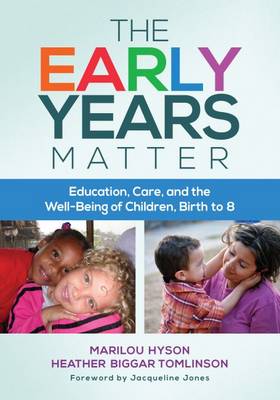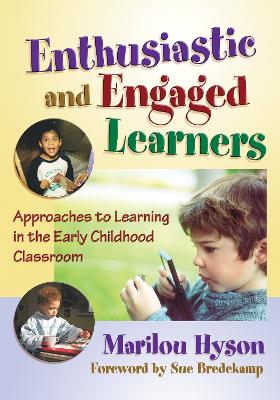Early Childhood Education
3 total works
Each chapter begins with an introductory vignette focused on one child whose experiences are typical of other children in the same age group or life circumstances, using that child's experiences to draw out what the best research tells us about why early care and education matters for that group of children. The book also features first-person narratives by early childhood professionals working in a range of positions who offer insight into the complexity and joys of working with or on behalf of young children. Suggestions for further reading and concluding questions for reflection, dialogue, and action make The Early Years Matter a perfect resource for courses and professional development.
The last 20 years have witnessed a remarkable revival of interest in the study of emotions and of early emotional development, subjects that had been virtually ignored in previous decades. Bringing this popular resource completely up to date, Marilou Hyson offers a solid foundation for building an emotion-centered early childhood curriculum, linking emotional competence to school readiness and to a broad range of important child outcomes. She also provides educators with real-life examples and evidence-based teaching strategies to advance children's understanding and appropriate expression of their emotions.
New for the Second Edition!
Resource Notes in each chapter of Part I provide examples of recent developments in emotion-related standards, policies and programs, self-assessment questions for practitioners, and other practical tools. Part II, Going Deeper: Exploring Emotions and Their Development, features brief vignettes with a series of discussion questions, summaries of key information about the topic, and an annotated list for further reading. New Appendices provide information about the history of emotions in early childhood education and guides to selected assessment tools and to classroom-based interventions.Critical Acclaim for the First Edition!
"Insightful and research-based information will serve as important reading for early childhood teachers."
--Think
"Hyson's blending of theoretical and research underpinnings with practical experience should be read by all professionals in early childhood education."
--Readings
This important resource brings together current theory and research into children's early emotional development, and applies this knowledge to practice.
--School Supervisor


